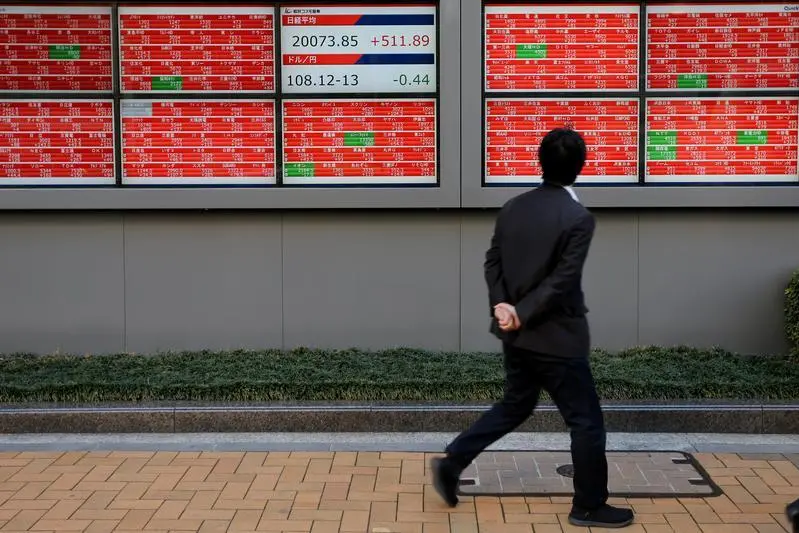PHOTO
Japanese business confidence worsened for the first time in nearly two years in the first quarter, a central bank survey showed, as companies were hit by supply disruptions and surging raw material costs caused by the Ukraine crisis.
Companies expect conditions to worsen further three months ahead, the Bank of Japan's closely-watched "tankan" showed on Friday, heightening the chance the bank will slash its growth forecast in a quarterly review scheduled later this month.
The tankan survey also showed firms expect inflation to hit 1.8% a year from now, up from 1.1% in the December poll and the highest forecast on record - highlighting Japan's rising upward price pressure.
"The tankan highlighted a strong sense of caution among manufacturers, particularly automakers, over rising raw material costs and chip shortages," said Takeshi Minami, chief economist at Norinchukin Research Institute.
"The outlook is uncertain, too, due to the Ukraine crisis and slowing Chinese growth," he said.
The tankan's headline index gauging big manufacturers' mood slipped to plus 14 in March from plus 17 in December, worsening for the first time in seven quarters and hitting the lowest level since June 2021. It exceeded market forecasts of plus 12.
Big non-manufacturers' sentiment index also worsened for the first time in seven quarters at plus 9, down slightly from plus 10 three months ago but exceeding market forecasts of plus 5.
About 70% of the firms sent in their replies by March 11, roughly two weeks after Russia's invasion of Ukraine.
"The readings were better than market forecasts, but it's probably because companies weren't able to fully factor in the potential impact of developments in Ukraine," said Toru Suehiro, senior economist at Daiwa Securities.
Food, auto and electric machinery makers saw sentiment worsen, as well as construction and retail sectors, in a sign of the wide-ranging hit from surging import costs.
An index gauging big manufacturers' output prices rose to a 40-year high, the tankan showed, suggesting more firms are putting higher price tags on their goods.
Big firms expect to increase capital spending plans by 2.2% for the current fiscal year that began in April, less than a market forecast for a 4.0% gain, the tankan showed.
The outcome will be among factors BOJ policymakers will scrutinise in producing fresh quarterly growth and inflation projections at their next meeting on April 27-28.
Analysts expect the central bank to cut its growth forecast for the current year beginning in April, and raise that for consumer inflation reflecting rising fuel costs.
In current projections made in January, the BOJ expects the economy to grow 3.8% in the current fiscal year. It projects core consumer inflation of 1.1%.
Soaring fuel and food prices blamed on the Ukraine war, coupled with rising import bills from a weak yen, have added to pain for households and Japan's economy still reeling from the coronavirus pandemic's hit.
Analysts expect Japan's core consumer inflation to approach the central bank's 2% target as early as in April, though the BOJ has said it will not respond to cost-push inflation with policy tightening.
(Reporting by Leika Kihara and Tetsushi Kajimoto; Additional reporting by Daniel Leussink; Editing by Sam Holmes & Shri Navaratnam)





















